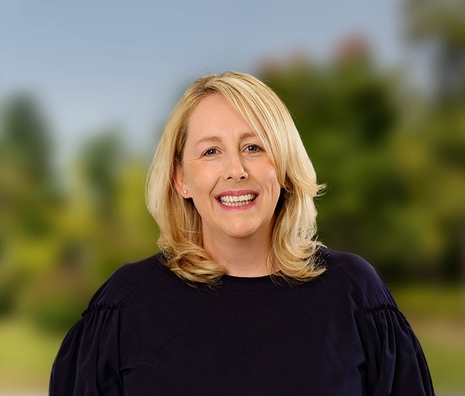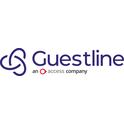
Sarah Jones, Customer Success Director

Hospitality is built on a central pillar - providing an exceptional experience for guests. From countryside pubs with rooms to city-centre hotel groups, the focus of every good hotelier is the guest. In today’s increasingly digital world, hotel technology must ensure the guest experience is also at the heart of the platforms created to service the industry. Hotel systems are no longer basic back-end software, counting occupied rooms and supporting finance with billing. Digitalisation has thrust previously purely operational systems into guest journey touchpoints - making technology pivotal to the guest experience. And, just as sales and marketing teams embody the brand beyond the hotel, technology should facilitate hospitality’s charm across all digital interactions. It’s essential tech vendors understand their role in shaping positive hospitality experiences for both guests and staff, a role that will promote commercial success in the most difficult of markets. The challenge of driving revenue and occupancy in a cost-of-living crisis, alongside staff shortages, risks compromising the guest experience. Technology needs to empower businesses without overwhelming teams with redundant functionality or complex infrastructure. Every hotel has different needs, so systems must flex to the commercial and operational characteristics of each property. Whether it's more revenue, more efficiency, or improved data control and use, having clarity on the wider business drivers will define the specific attributes required in tech to leverage commercial success. The brand must shine through: how it delivers hospitality, the type of service staff provide, the level of personalisation experienced, and the quality of business it operates. Technology touches every aspect of hotel operations; therefore, it needs to be well-considered, designed and configured to work in the background, invisibly yet efficiently supporting staff and guests. Integration (or system interfaces) is a big buzzword in hospitality tech today. It allows data to flow between various solutions, often from different providers. However, not all interfaces are built equal. While data may flow from the PMS, data from third-party applications may not return. This creates siloed data sets that, over time, become difficult to manage. Some time ago, our CTO Andrew Metcalfe said “What we need to be focusing on is how we have fewer consolidated vendors who do things well and are really well connected, rather than open chaos which hospitality thinks is right, right now. Everyone seems to be starting a start-up and expecting it just to grow and being grumpy with PMS’s for not integrating into the hundreds and hundreds of products available now. That isn’t hotelier-focused. It is unrealistic to assume that hoteliers possess the necessary technological expertise to assess the superiority of any of the 30+ available Guest Experience apps. Moreover, their time is limited due to ongoing staffing difficulties, making it impractical for them to undertake such evaluations.” The PMS must sync seamlessly with other systems - across departments such as F&B, finance, events, spa and more - to improve operations, efficiency and support staffing. Modular hotel platforms are like the welcoming kid in the school yard - they know how everything works and help new kids. At Guestline, our team of experienced hoteliers work with our tech developers to ensure the system is constructed with a set of purpose-built add-on products that work seamlessly together, while also interfacing with third-party systems. By offering our hotel partners a customisable platform - a ‘pick and mix’ style of tech products - hoteliers are in control to create the tech environment they really need for their business today and that can also scale through business growth, and deliver exceptional guest experiences. First-party data is worth its weight in gold - and the only way to obtain a detailed first-party database is to ensure there are no data silos. By running different systems in different parts of your business - or by relying on basic manual systems driven by Excel spreadsheets - hoteliers are encouraging fragmented data collection and management, increasing the chance of errors and risking data security. Catala said: A messy, convoluted system prevents hoteliers from using data in a holistic way. The perils of multiple interfaces and decentralised systems include a lack of on-property control (e.g. OTAs and booking engines retaining guest data), restricted data access and an inability to create meaningful oversights. The simpler the ecosystem, the greater the benefits from data. A unified system allows information to flow seamlessly from guests to all hotel departments, thereby improving the guest experience through enhanced recognition and personalisation. It’s easier for staff who can manage all data in the same place, use one log-in to gather or input information, and - via business intelligence reporting such as Guestline Insights - be able to gauge a holistic view of the business easily. Therefore, an effective technological solution is one that lets hoteliers control their own data. Where systems are unified, there is no discrepancy in information flow - sharing it seamlessly internally - empowering staff with a 360-degree view of a guest to make their experience even better from discovery through booking to post-stay. A common debate amongst technology providers revolves around legacy systems - technology that’s seemingly been around forever, which are often server-hosted onsite. They are usually purchased with a single purpose, very often requiring expensive extensions from the same vendor due to its third-party integrations being near impossible. These systems can cause a mish-mashed, complex web of systems which don’t communicate properly with one another. Are such ‘legacy systems’ fit for purpose in today’s digital world? The glut of new technology providers that work solely in the Cloud would suggest not and, according to Catala, Vendors offering legacy systems realise this is not the way forward, and they should be sunsetting these solutions. According to a report by the Economic Intelligence Unit, cloud services can reduce IT costs by 40% For some hoteliers, transformation is not yet the top priority - down to a hesitancy to switch which according to Metcalfe could be due to lack of trust in the vendor market. Even if the ‘promised’ gains of a new solution sound really tempting, they fear to compromise on existing functionality. It’s hard to believe that in 2024, hoteliers still think going Cloud means compromising on quality and functionality, however, this is not the case. At Guestline today, none of our customers are server-based; each enjoys the perks of using a system that’s hosted in the Cloud. Cloud-based platforms enable speedy programme updates, centralised data security, and remove the need for bulky hardware such as servers or backup generators. By 2026, more than 75% of hoteliers will have adopted cloud hospitality solutions. It’s not just Cloud-native platforms; there’s been a shift in understanding the role technology plays within a property. Hotel technology has evolved from being predominantly back office systems to a more integral role in providing a positive guest experience. It’s clear the world has moved beyond simple Property Management Systems (PMS) that manage rooms and invoicing - and while a centralised, secure and mobile platform is vital, today’s digital-first world must address usability by staff (with minimal training), and for guests (optimising intuitive experiences). Catala added that systems must offer Guest facing technology is advancing as we become more accustomed to self-service and expect a level of autonomy and control. From simple booking engines, centralised hotel systems should provide guests (and staff) with enjoyable digital experiences such as: The savings and additional revenue drive profit further, allowing hotels to invest in amenities and guest experiences as part of the longer-term commercial goal of a connected hotel technology ecosystem. As an industry, we need to be more guest-facing and people-focused, proactive in providing platforms fit for purpose. With Guestline, our hoteliers are empowered to run their business the way they want, delivering a unique guest experience and alleviating pressures on staff. We’ve continually invested in our systems to provide a fully-connected, centralised, secure and mobile single platform customisable to each property and workable for people. We believe in tech, which delivers human solutions, improving not just the guest experience, but a hotelier’s too.Catering to different property needs
There is no one-size-fits-all solution,
according to Thibault Catala, CEO of Catala Consulting. It’s important to define the guest journey if you’re going to understand how technology can help your specific property. Hotel tech is about letting each guest have the choice of whether to use a computer or talk to a human, empowering them to shape their own experience from the outset. The better hoteliers understand their customer journey, the better they can use technology to improve customer satisfaction.
Integrations vs built-in platforms
The value of a fully connected system
Garbage in is garbage out. Without the right data, you can’t have the right output. Everything starts with clean data.
Connected systems accelerate the job. Where you can automate data management, the team can focus on strategy and most importantly, experimentation - looking at how to bring greater efficiencies or increase revenue,
added Catala.Finding the platform that’s right for you: Legacy or Cloud-based?
Legacy systems are still quite popular in the market but are losing market share to new players mostly because they have been resistant to change. Legacy systems aren’t able to have the same pace as [newer suppliers]. Training new users is much quicker on Cloud-based solutions as they are easier to use, with clean interfaces and highly responsive customer support if needed.
Evolving hotel technology from back office to guest facing
ease of use for guests at every touchpoint in the guest journey.
Time to put our ‘experience’ first
Contact
Sophie Cartwright
Marketing & Communications Manager
Shrewsbury, United Kingdom
Phone: 01743 282300
Email: sophie.cartwright@theaccessgroup.com
Organization
Guestline Ltd
https://www.guestline.com/
Guestline House, Shrewsbury Business Park
Shrewsbury, Shrewsbury
United Kingdom
Tollfree: 0800 413557
Phone: 44 (0) 1743 282300
Email: sales@guestline.com
Recent News
 Guestline Wins Best Hotel Technology Product at the Boutique Hotelier Awards 2024 | By Billie Ward Guestline Wins Best Hotel Technology Product at the Boutique Hotelier Awards 2024 | By Billie Ward |
 Safety First. How Secure Transactions Shape the Hospitality Experience | By Andrew Williams Safety First. How Secure Transactions Shape the Hospitality Experience | By Andrew Williams |
 Apple Pay, A Catalyst for Growth in Hospitality | By Andrew Williams Apple Pay, A Catalyst for Growth in Hospitality | By Andrew Williams |